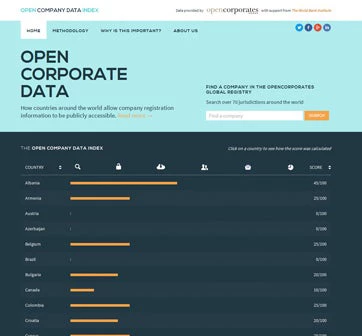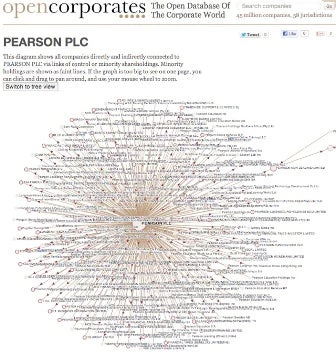
The reason businesses do this? Not because of old do-gooding principles, but because solving development issues around the value chain becomes a crucial part of doing business through crowd-sourcing innovations, reducing cost and managing risk.
But the questions are, how can practices that benefit both the bottom line AND development, be scaled up? Can we encourage mass-adoption of the sustainable approaches that IFC has been promoting for years? How do we mainstream that which Michael Porter has called “Creating Shared Value”? How do we go from a few smart companies to millions adopting open and collaborative practices?
To begin answering these questions, the World Bank Institute is launching the “Open and Collaborative Private Sector” initiative. This will complement efforts that others at the World Bank and elsewhere have been advancing on Open Aid, Open Data and Open Government.
The initiative will promote a number of innovative practices such as open and sustainable supply chains, open contracting, public-private dialogues, and the opening-up of corporate registries.
As Caroline Anstey, World Bank Managing Director, put it at the G8 Open for Growth event, the Open and Collaborative Private Sector Initiative will leverage “open data and collaborative practices to increase the impact of the private sector on development”.
Open corporate registry data is where it starts.
That’s why, to incentivize governments to increase transparency of their corporate registries, and to foster efforts related to corporate accountability, we are supporting the launch of the Open Company Data Index pilot at http://registries.opencorporates.com.
It is crucial to know who owns what company. Private Corporations need to pay their taxes. They also often are awarded and operate public sector contracts. But corporate structures and relationships are so complex they are nearly impossible to understand while often allowing for tax evasion and the exploitation of loopholes.
These obstacles to transparency have negative consequences for all of society. Businesses can’t compete in a level-playing field. Public resources are often lost or mismanaged. Citizens pay the price for ineffective service delivery and for projects that aren’t completed. Development agencies can’t ensure that funds are leading to the intended outcomes.
Corporate transparency and accountability are a crucial part of the solution and important components in the effort to fully unlock the potential impact of the private sector on development.
This new data index looks at the state of play of how countries enable transparency of information about registered corporations. But it goes further. By aggregating open registry information, this tool generates open-source, transnational datasets that can help curb corruption, check beneficial ownership, and deepen competitiveness analysis, so that the private sector can also benefit from transparency.
One of the most exciting features is the ability to search for a company across all countries at once; but also - and this is a game-changer – the possibility to generate a visual representation of the transnational corporate network to which a company belongs. In turn the registry information of all the companies in that network is accessible. As more registries are disclosed and connected to the database, our partner OpenCorporates, who has been supported by the Alfred P. Sloan Foundation, will roll out this “network” feature for any company.
Imagine when anyone could map relationships of a company with not only its direct affiliates, but also other companies, even if they are in different countries? During the G8 event, Caroline Anstey explained that “the potential benefits for governments, media, citizens and the private sector to be able to map the connection between companies, are enormous”. It is true. This could bring very significant benefits and opportunities for anti-corruption work, for checking on beneficial ownership, but also for competitiveness analysis.
Check it out yourself. Visit the Open Company Data Index and join us as we work to help companies improve their bottom line and increase their development impact.



Join the Conversation